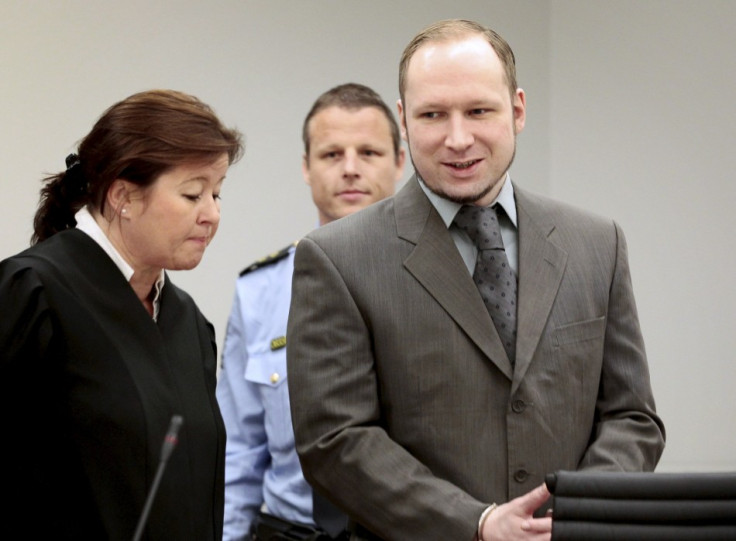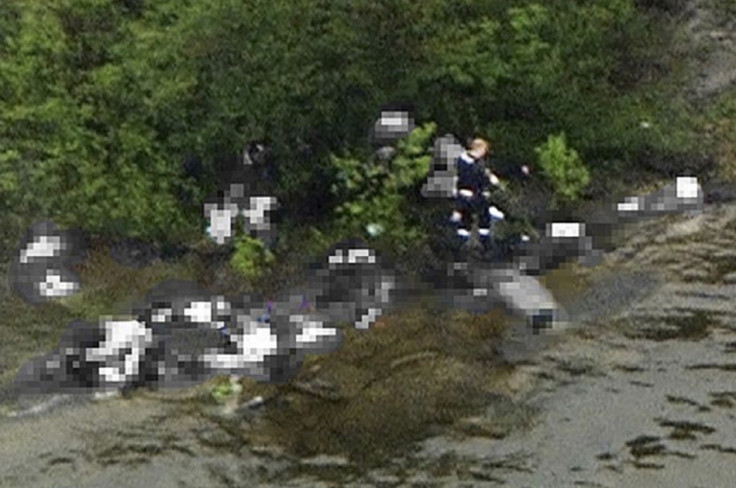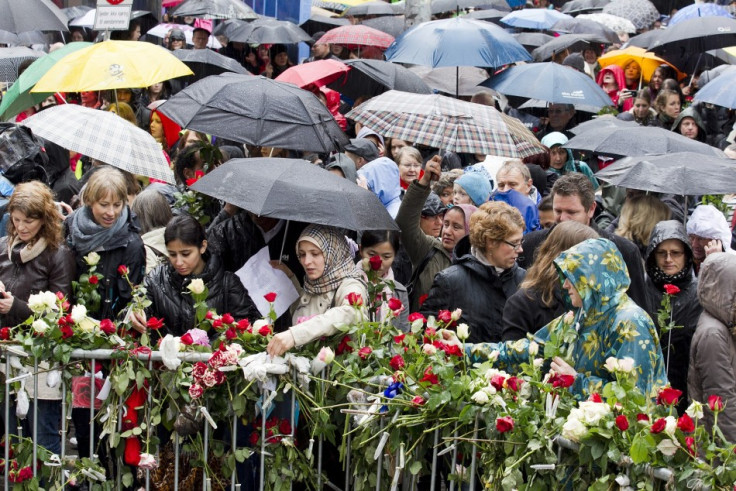Norwegian Mass Killer Anders Behring Breivik May be Sane, Prof Simon Wessely Tells Lancet

Norwegian mass killer Anders Behring Breivik may not be insane, a leading psychiatrist claims.
Prof Simon Wessely addressed the subject of mental illness and mass killings in an article in medical journal The Lancet, in which he took aim at the knee-jerk expectation that outrageous crimes mean mental illness.
Wessely, of King's College London, was asked by the Norwegian government to join an international advisory council to look at the emergency response to Breivik's attacks, which claimed 77 lives on 22 July, 2011.
Breivik, who does not deny his attacks but refuses legal culpability, set off a bomb outside government buildings in Oslo, killing eight, before massacring 69 people during a Labour Party youth camp on Utoya Island.
Two psychiatric assessments have been carried out on Breivik, one concluding that he was insane and the other that he was sane.
Breivik, 33, who believed he had just cause to carry out the attacks as part of a perceived war on multiculturalism, is currently on trial in Oslo, with a decision on his mental state forming the key component of his legal culpability.
"When people struggle to comprehend what lies behind the mass murder of adolescents gathered for a weekend of discussions and campfires, the simplest response is that the killer 'must be mad'," Wessely wrote.
"The inexplicable can only be explained as an act of insanity, which by definition cannot be rationally explained. The act was so monstrous, the consequences so grievous, that the perpetrator had to be insane."

However, Wessely noted, Norwegians whom he spoke to while the country was waiting for the first conclusions on Breivik's health were insistent that he should not be found to be mad, with the perception that he would escape punishment.
"Norway is a country with one of the best developed mental health systems in the world. It prides itself on its tolerant attitudes toward mental disorders," he said.
"But tolerance can only go so far, and the majority of the Norwegian public saw a label of schizophrenia as allowing Breivik to avoid having to answer to his crimes, and worse, that a psychiatric diagnosis raised the spectre that he could be free again."
In his article, he claimed the Breivik case highlights two misconceptions, that outrageous crimes are inherently linked to mental illness and that the purpose of psychiatry is to "get people off" punishments.
He explained that "diagnoses in psychiatry are made on the basis of symptoms and motivations, rather than outcomes".
"Breivik's views on the evils of multiculturalism, immigration, and the threat of Islam mixed in with nonsense about the Knights Templar and so on, are absurd, reprehensible and abhorrent, but he is not alone.
"One fears that in the backwoods of Montana or among those who subscribe to what is loosely called 'anti jihadism' are other people like him, who may also have devoted a summer to playing World of Warcraft and believe that Dan Brown writes history."
Wessely argued that the majority of prisoners would rather spend their time in prison than in a mental institution, as they have the same prejudices as the public with regard to mental health.
"The widespread anger when it seemed that Breivik was going to be sent to hospital rather than prison reminds us that liberal attitudes to mental illness are still often only skin deep," he added.

On 26 April, around 40,000 people rallied near the courtroom as Breivik's trial proceeded, singing songs in favour of multiculturalism. Breivik has continued to shock the country with his unflinching testimony on, and reasons for, his attacks.
A majority vote of three of five judges will be required in the trial, with a verdict expected in mid-July. Breivik is charged with terrorism and premeditated murder for a bombing in Oslo's government district, killing eight, and a shooting attack at a political youth camp, killing 69.
If convicted he would face a maximum sentence of 21 years in prison, which he branded "pathetic", though sentences can be extended if a criminal is considered a menace to society. If declared insane by the court, he would be committed to psychiatric care. Both sides can appeal the ruling to a higher court.
© Copyright IBTimes 2025. All rights reserved.



















